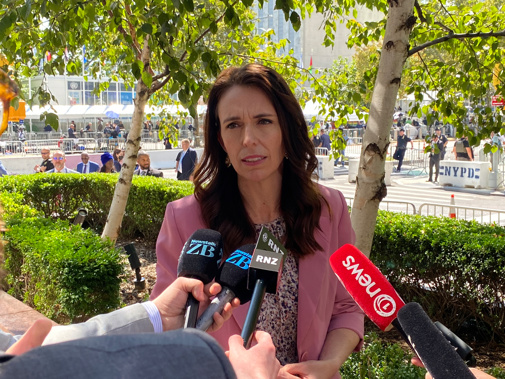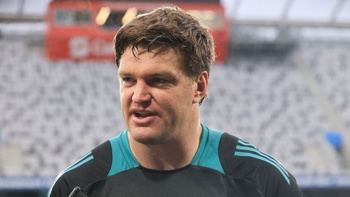
Tech experts have questioned whether the Christchurch Call will survive without taxpayer support. But an Islamic Federation spokesman has defended the Call's achievements as the Government calls time on funding the initiative.
From June 30, the coalition Government will no longer support the Christchurch Call - set up by former Prime Minister Jacinda Ardern, in partnership with French President Emmanuel Macron, to eliminate the spread of terrorism and violent extremist content online.
It was done in response to the March 15, 2019, terrorist attacks in Christchurch that killed 51.
The Call will now become a charitable foundation, of which Ardern will be given unpaid role of patron instead of her current position as special envoy to the Prime Minister.
PM Christopher Luxon told Newstalk ZB this morning that the move from taxpayer to donor funding was the natural next step for the Call after five years of evolving.
"The Call is a global community, it has a number of Governments and tech industries signed up: society bodies that bought into the mission. They will be the source of funding going forward."
Luxon said he believed the Call had done good work.
"If I look at the Buffalo shooting: in terms of having a protocol that moved to protect players as soon as one of these horrific events takes place, there's been good work around algorithms that quickly get that content off the tech platform," he told ZB.
"There's been good work going on – it's hard work, eliminating extremist content is really difficult - but actually the work coordinating tech players to see what they can do about it is a good thing."

The Federation of Islamic Associations Abdur Razzuq defended the initiative in a fiery exchange this morning with Newstalk ZB host, Andrew Dickens.
Dickens said the Call had been "de-powered" and had only led to people "gasbagging" over how to solve graphic content being spread online, which Razzuq said was a “very interesting interpretation.”
“What metrics are you using? I appreciate your perspective but you need to have a wider perspective," Razzuq told Dickens.
The Call had brought in 56 governments, 19 tech companies such as Microsoft and Google and 50 civil societal organisations, Razzuq said - all under the leadership of Macron and Ardern to address violent extremist content online.
If somebody wanted to talk of the Call's outcomes, people should look at their reports "rather than this knee-jerk reaction", he said.
"One - if there was any gasbagging, why would they join? The numbers are increasing. Two - the number of violent extremists for example when March 15 happened, it took quite a while for the video to come down. When Buffalo happened it took two minutes," he told Dickens.
"Governments are using this as a baseline to look at some of their legislation for example - the Canadian Government. Before we go on about this kind of rhetoric of media posts of gasbagging, you need to read the report and then comment. You have a social responsibility."
Dickens asked why the Government was pulling its support if the Call was so successful, to which Razzuq argued the Government was not pulling support but it was merely a natural transition.
He said it would enable the Call to operate with greater flexibility and increase its value; now it would be up to the donors to determine whether it was worth supporting further.
Dickens asked if the Call would bring in donations.

"Again, it’s hot air what you're saying,” Razzuq responded. “What we're now saying is that it's already a foundation, it already has people like Jacinda Ardern and the Prime Minister saying we'll be supporting this, it's already on its way."
Tech expert Paul Spain was also asked if the Christchurch Call would be able to operate without funding from the Government.
Spain said the Call was about raising concerns of violent content on social media, but the hard work has to happen with the social media firms involved.
"AI has actually advanced quite considerably sine the Call started so the tools available now are much more powerful than what was available when it started. So there's a degree to which this has changed a fair bit over this time," he said.
"Social media companies are really listening to Governments more than what they did and really following these things closely, but there's also a balance here."
Spain pointed to an example in Australia recently when a regulator insisted on certain content being blocked, and while some of the social media platforms blocked it very quickly, Elon Musk’s X - formerly Twitter - said it was an overreach.
In the past few days the nation's federal court then came out with a stinging rebuke of what the Australian Government was trying to accomplish.
"So we've got to try and find the right approach, we don't want what was a good initiative with the Call to end up becoming something that encourages Governments to go down the track of hiding things that should be appropriately shared."
When asked how much money would be needed to keep the Call active, Spain couldn't guess. He did admit he thought it would need a "tremendous amount of funding" because of how much tech companies such as Meta have in their banks.
However, Spain said the Call separating from the Government wouldn't affect its mission in any way.
"I don't think the direct impact of [the Call] is related to how its funded and connected to being a New Zealand Government initiative, I don't think it changes the picture at all," he said.
Take your Radio, Podcasts and Music with you









